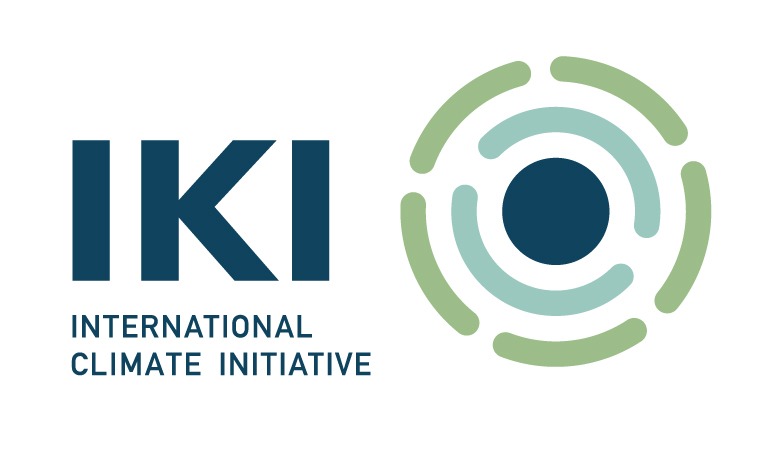EbA E-Learning Course
Working with nature to adapt to a changing climate
Ecosystem-based Adaptation (EbA)—also known as nature-based solutions for climate change adaptation—is increasingly gaining policy support and being implemented by diverse actors around the world.
EbA is the conservation, restoration, and sustainable use of biodiversity and ecosystem services as part of an overall strategy to help people adapt to the adverse effects of climate change, thereby protecting vulnerable ecosystems, communities, and livelihoods. Despite growing policy momentum for EbA, there is a clear need for further training to ensure that EbA actions are rights based, gender responsive, and achieve better outcomes for biodiversity.
The EbA E-Learning course—developed by Deutsche Gesellschaft für Internationale Zusammenarbeit (GIZ), IUCN, International Union for Conservation of Nature, and the International Institute for Sustainable Development (IISD)—builds on more than a decade of research, experience, and partnerships in implementing EbA.
Offered as a massive open online course (MOOC) for a global audience, the course will equip learners with transferable and replicable skills in designing and implementing EbA initiatives by offering targeted training on key principles, risk assessments, monitoring, and governance. The course will also work to increase EbA knowledge outside of the environmental conservation community and help participants integrate EbA into other sectors, including water, agriculture, and urban environments.
The course is currently offered in English, French, and Spanish.
Why take the course?
Understand the role of EbA within an overall climate change adaptation strategy
Be able to plan EbA activities in a logical order and apply EbA best practices
Learn how to integrate rights-based approaches and other aspects such as gender, livelihoods, and Traditional Knowledge into EbA projects
Discover how to mainstream EbA across sectors, including infrastructure, agriculture, and water resources management
Who is this course for?
The course targets decision-makers in public and private organizations; professionals who may not be familiar with EbA but who work in a related field (development, infrastructure, agriculture, integrated water resources management); civil society organizations; actors at community, national, and global scales; early-career EbA professionals, current students, and university faculty; and EbA practitioners from both the Global North and Global South.
As the course provides a certain level of technical detail, interest in in-depth learning about planning and implementing EbA measures is a key requirement.
Course Syllabus
This self-paced e-learning course consists of nine units comprised of video lectures and case studies, quizzes, and handouts. The course will take approximately 10 hours to complete and can be completed at the convenience of the learner. Units 2–7 will each have a quiz to assess the achievement of the respective unit’s learning objectives. Handouts that summarize the unit’s content and contain additional resources on the topics discussed are also provided with each unit. The course is offered in English, French and Spanish.
Module 1: Introduction to the Course
A brief introduction and rationale for the training course.
Module 2: What is EbA?
Introduces the concept of EbA and its basic elements and provides an overview of common terms used in the EbA realm.
Module 3: The EbA Mainstreaming Framework
Presents a framework for developing and mainstreaming an EbA project and highlights five cross-cutting topics of EbA.
Module 4: Climate Risk Assessment
Guidance on the process of preparing a climate risk assessment and its importance in identifying potential EbA actions.
Module 5: EbA Valuation
Focuses on the valuation process of EbA, including its costs, benefits, and impacts. The ability of valuation to prioritize EbA actions is also discussed.
Module 6: Implementing EbA
Explains a stakeholder analysis, highlights international policies aligned with EbA, and provides examples from different ecosystems and sectors.
Module 7: Monitoring, Evaluation and Learning
Discusses a four-step process for monitoring and evaluation in EbA projects and its importance in EbA.
Module 8: Mandatory Insight Units
Allows participants to progress through four insight units, which offer further information on the cross-cutting themes of governance, gender, Traditional Knowledge and Indigenous and Local Knowledge, and biodiversity.
Module 9: Optional Insight Units
An option to select additional sector-specific insight units from any combination of the following topics: EbA and agriculture, EbA and water, and urban EbA.
Testimonials
It is interesting to see how experts—botanists, biologists, environmental engineers, etc.—rely on the ancestral Indigenous Knowledge of local communities to develop scientific information. In my country, Guatemala, Indigenous Peoples have lived on the same land for thousands of years: they have witnessed the effects of climate change for generations, and their level of understanding of the local ecosystems is invaluable.
I am a Ukrainian currently based in Berlin. I work for an NGO seeking to establish energy cooperatives and communities in Ukraine. The EbA concept is new to me, and I plan to introduce it in my work when rebuilding Ukraine.
The case studies were the most impactful and my favourite part of this course. I have pre-existing theoretical knowledge of EbA, so it is encouraging to see real-life examples of how EbA is actually working for communities.
Two areas really resonated with me in this course. The first was the integration of Indigenous and Traditional Knowledge with modern scientific and social principles to achieve sustainable and equitable outcomes. The second was the need to conduct research and build an understanding of the local environment to avoid introducing solutions that lead to maladaptation.
The biggest insight I gained from this course was how EbA can provide climate resilience as well as co-benefits across different areas, such as agriculture, water management, and urban environments. Implementation across all sectors should examine social, ethnic, and economic factors to ensure groups that are most impacted by climate change are not marginalized in the process and left vulnerable.
The course analyzes climate change impact chains: how systematic approaches can be applied to reduce the risks of maladaptation and what type of EbA is important to improve adaptation. I am from Bangladesh, and this concept is very important for our country.
Our partners and sponsors
The EbA E-Learning course is the product of a collaboration between GIZ, IUCN, and IISD and builds on a decade of research, experience, and strong partnerships in implementing EbA over the last decade. The E-Learning Course has been developed with financial support from Germany’s Federal Ministry for the Environment, Nature Conservation, Nuclear Safety and Consumer Protection (BMUV), and Global Affairs Canada.








